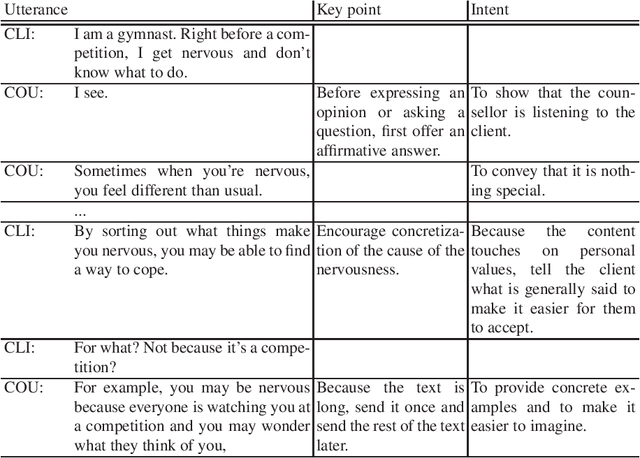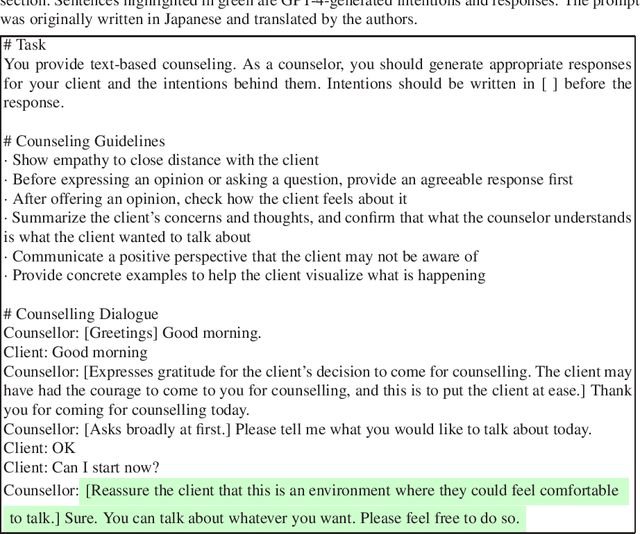Can Large Language Models be Used to Provide Psychological Counselling? An Analysis of GPT-4-Generated Responses Using Role-play Dialogues
Paper and Code
Feb 20, 2024



Mental health care poses an increasingly serious challenge to modern societies. In this context, there has been a surge in research that utilizes information technologies to address mental health problems, including those aiming to develop counseling dialogue systems. However, there is a need for more evaluations of the performance of counseling dialogue systems that use large language models. For this study, we collected counseling dialogue data via role-playing scenarios involving expert counselors, and the utterances were annotated with the intentions of the counselors. To determine the feasibility of a dialogue system in real-world counseling scenarios, third-party counselors evaluated the appropriateness of responses from human counselors and those generated by GPT-4 in identical contexts in role-play dialogue data. Analysis of the evaluation results showed that the responses generated by GPT-4 were competitive with those of human counselors.
 Add to Chrome
Add to Chrome Add to Firefox
Add to Firefox Add to Edge
Add to Edge